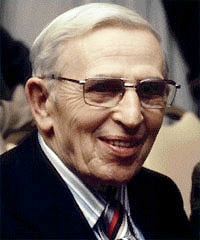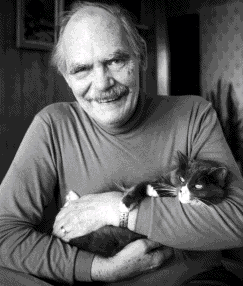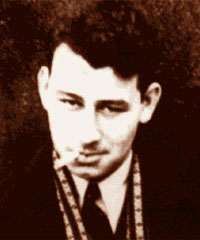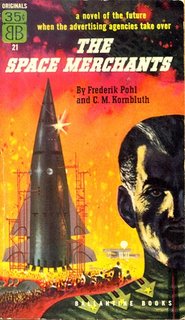#13: Ring Around the Sun (1953) by Clifford D. Simak
“It had been the blade at first, the razor blade that would not wear out. And after that the lighter that never failed to light, that required no flints and never needed filling. Then the light bulb that would burn forever if it met no accident. Now it was the Forever car.”

Ring Around the Sun (1953) is a yarn about androids, parallel earths, mutants, and the death of capitalism. Now Clifford Donald Simak (1904-1988) wasn’t a socialist, but he was certainly a believer in some kind of sf agrarian populism--cornfields, barns, and robot labor. Simak grew up in rural Wisconsin, which would explain both his philosophy and the fact that most of his stories take place, at least in part, in rural Wisconsin. RATS is no exception.

Things start off simple enough. We see the day-to-day life of Jay Vickers, a Wisconsin native living the writer’s life in rural New York. Vickers lives alone, has a friendship with the odd old man on his street, and pines for a high-school sweetheart--straight out of a John Mellencamp song--who disappeared one day after a cinematic walk in the valley. Then things get a little Twilight Zoney. First, everlasting gadgets appear: razors that don’t need to be sharpened, light bulbs that never burn out, lighters that perpetually light. Then big ticket items: cars that run silently forever and houses that function solely on solar energy. World governments secretly fear a coup behind the appearance of these things, even more so when their makers start giving away free food substitutes. Vickers is mysteriously drawn into this milieu by a secret government agent.

Along the way, Vickers finds the door to the ring suggested in the title (a metaphor for a series of parallel earths that circle the Sun in separate timelines), and the key is a child’s top. The worlds are waiting, limitless and virgin expanses suited to cure humanity’s need for lebensraum. A genetically separate strand of humans with extraordinary abilities (“mutants”) have a population redistribution plan that involves these earths. They figure giving away cheap housing, everlasting goods, and free food will ruin Earth’s economy and cause a revolution (so the governments were right to be afraid!). The revolution will bring folks to these parallel earths (it’s complicated). Actually, folks are already waiting for something like this. There are rumors in the media about time travel, and many citizens spend their free time in Pretentionist clubs--groups that pretend to be living in a different time and place. For instance, one club lives like the world is as described in Pepys’ diary (perhaps they are called Pepys Peeps). Anyway, the mutant plan also happens to involve Vickers.

Growing up in a rural Midwestern town myself, I must confess that I sometimes have Simakian fantasies, though I’m not a true believer. Agrarian life is fine in Thomas Hart Benton paintings, but it can be a real bitch in reality. That’s not to take away from Simak’s work though. I find his concept of time interesting in particular. Time travel isn’t possible, rather there are unique timelines that can be traversed, in the case of RATS, by (paranormal?) mental capabilites. And I think his fantasy of elbow room would appeal to many, no? How often do we hear murmurs of overpopulation, overuse, and a human-caused environmental instability? And of course, city life can be a drag.







